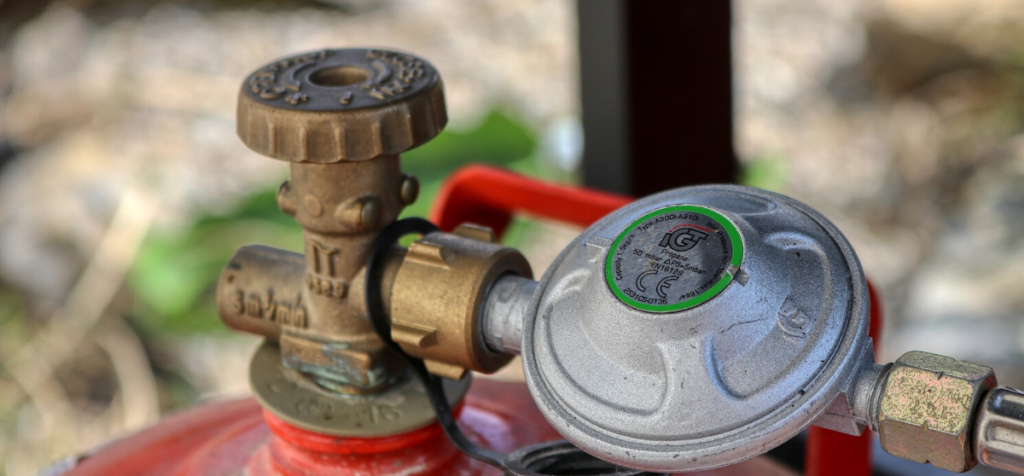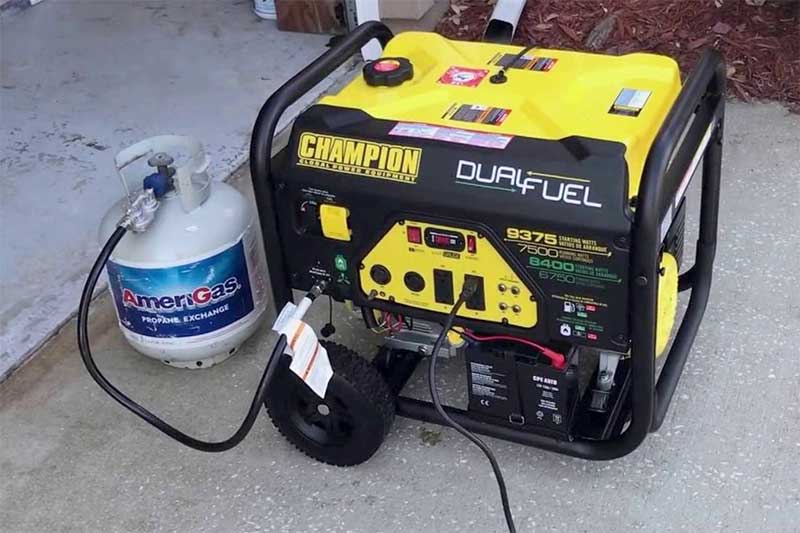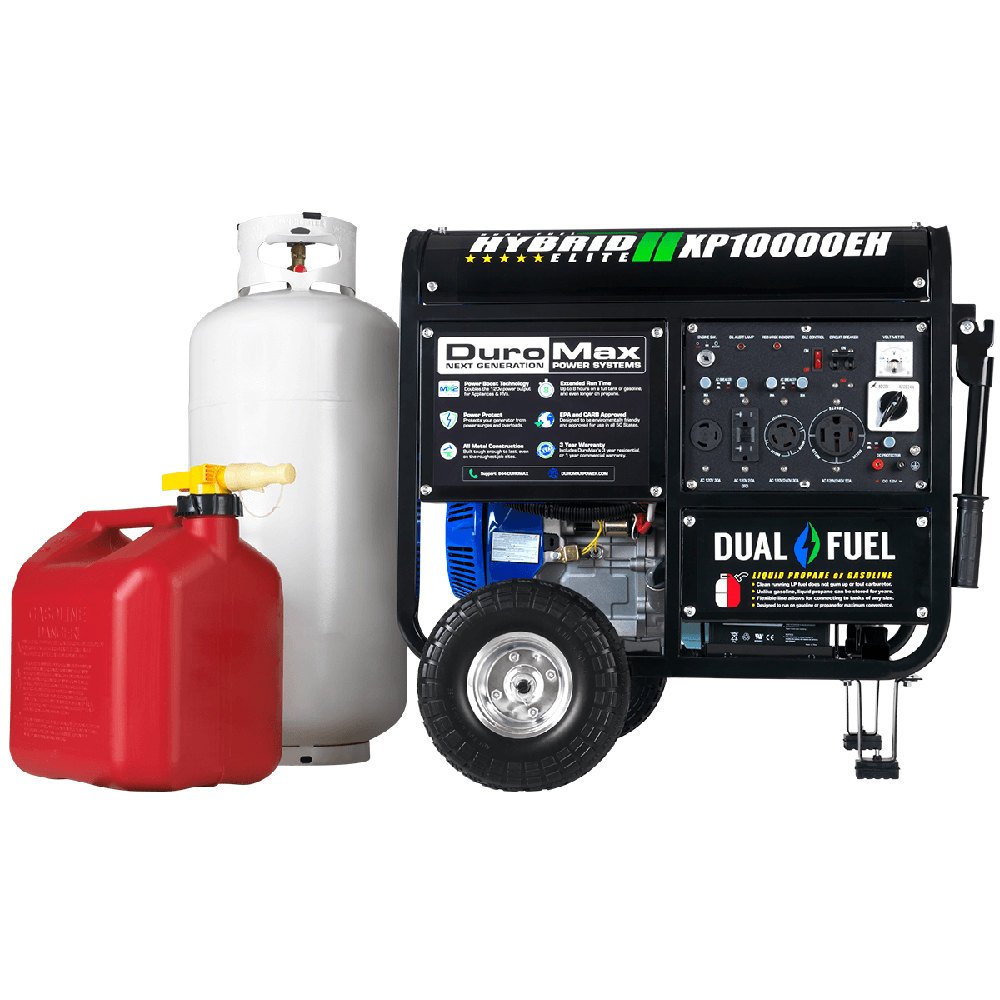Recently, many people are beginning to see the importance of a generator. It’s essential when camping, on worksites, or when there’s a power cut in the neighborhood.
Asides from using generators, it’s essential to consider other factors before purchasing one. Factors like the cost, fuel types, gas usage, and load are necessary before deciding on the generator to buy.
The thing is, all generators do not have the same gas usage rate. They vary based on the expensiveness, handling, maintenance, and so on.
This article will review the generator types, consumption rates, factors, and ways to reduce fuel consumption in generators. Keep reading on!
Different Types of Generators
 Generators come in different types. We’ll list some of those types below.
Generators come in different types. We’ll list some of those types below.
Portable
As the name implies, this type of generator is very compact, easy to handle, and convenient for travel. The portable generator can charge gadgets like PCs and power up appliances. The con of this generator is that it can only handle few appliances at once.
Standby
This generator is mighty as it is helpful in areas where there’s a high chance of a power outage. The standby generator is the best in case of emergencies, as you’re never short of power.
Inverter
This is the smallest of all generator sizes. It is best useful for powering devices like phones and laptops.
Solar
This is a new technology that converts sunlight energy to electrical energy. It’s environmentally friendly and delivers power on both small and large scales.
Tri-Fuel
For a very versatile generator, the tri-fuel generator is necessary. It gives you the chance to use three different fuels in a generator (gasoline, natural gas, and liquid propane).
Types of Gases and Their Consumption
Knowing what type of gas your generator uses is essential. It helps to determine the fuel efficiency and whether it’s usable with other fuels. Asides from the inverter and solar generator, the following gases power up many generators.
Diesel
 Diesel generators save fuel as diesel burns slowly compared to other fuels; hence, making them very cost-effective. The slow-burning of diesel causes environmental hazards as it releases harmful chemicals into the atmosphere.
Diesel generators save fuel as diesel burns slowly compared to other fuels; hence, making them very cost-effective. The slow-burning of diesel causes environmental hazards as it releases harmful chemicals into the atmosphere.
Diesel generators burn about 1.6 gallons in one hour for a 20kW unit while operating on a full load. For a generator size of 1,000kW, a diesel generator will use 71.1 gallons per hour on full load. It uses 106.5 gallons/hour on a full load for a generator size of 1,500kW.
Propane
This gas is very abundant and works for every home. It’s advantageous in remote areas where getting fuel may be an arduous task.
For a propane gas generator, a 6kW unit can use around 1.42 gallons in an hour. A propane generator of 500 gallons is enough to power a building for seven days.
Gasoline
They are one of the most inexpensive and readily available generators; hence, their popularity in many homes. However, refuel, and maintenance is expensive as gasoline isn’t readily available in times of emergency.
A 5kW generator uses 0.75 gallons of gasoline within 1 hour. That means that for 24 hours, a gasoline generator will consume 18 gallons of gasoline.
Natural Gas
Natural gas is ideal for homes with gas pipes. It’s a better option than diesel, but it has its disadvantages. Some disadvantages include a delay in the start-time, interruptions in function, and not being eco-friendly.
A 7kW generator burns 118 cubic feet of natural gas in 1 hour. A generator size of 1,000kW uses 9883 cubic feet of natural gas per hour.
Factors That Affect Rate of Consumption
Some elements need to be put into consideration when measuring the rate of generator gas consumption. All generators cannot use gas in the same way. That is why we have come up with a list of factors affecting the use of gas in a generator.
Type of Generator
 Generator designs and build quality varies. Different models come with varying rates of consumption; hence, the reason for this factor. For example, the standby generator consumes fuel a lot due to its enormous size and the heavy load it carries. Whereas the inverter generator doesn’t use gas fuel as it uses electricity to power up devices.
Generator designs and build quality varies. Different models come with varying rates of consumption; hence, the reason for this factor. For example, the standby generator consumes fuel a lot due to its enormous size and the heavy load it carries. Whereas the inverter generator doesn’t use gas fuel as it uses electricity to power up devices.
Type of Gas
Some gases burn quicker than others. For example, diesel burns very slowly but efficiently, thereby maximizing cost, whereas natural gas offers a cleaner and better option but burns faster.
Load
This is a huge factor that affects how fast your generator chews through the gas. It is common knowledge that a high load equals a high rate of consumption. The number of appliances that are connected to the generator will determine its draining effect.
Ways to Reduce Gas Consumption in Generators
Sometimes, you might feel your generator consumes too much gas even without using it for too long. Purchasing a reliable generator is usually the first step, but there’re other measures to reduce fuel consumption in your generator. Let’s check them out below.
Reducing the Generator Load
Too much load on a generator quickly drains the fuel and wears out the generator. Ensure you only power up the necessary appliances. That way, you save costs and maintain the efficiency of the generator.
Get Rid of the Carbon Residues
 When diesel burns, the carbon residues remain in several generator components, therefore, emitting black smoke after a while. These carbon residues accumulate and begin to consume fuel excessively. Removing the carbon residues and cleaning the generator is a way to ensure low fuel consumption.
When diesel burns, the carbon residues remain in several generator components, therefore, emitting black smoke after a while. These carbon residues accumulate and begin to consume fuel excessively. Removing the carbon residues and cleaning the generator is a way to ensure low fuel consumption.
Reducing Generator Usage
It’s better not to frequently power the generator as it tends to increase gas consumption. Although this may be a slight issue in homes, it’s better to have an optional power source for commercial uses.
Generator Servicing
Regular maintenance is essential. Employ qualified professionals to service your generator regularly. That way, your generator works at its best, and there’s no excessive fuel consumption.
Conclusion
As we have seen from the above write-up, the amount of gas a generator uses vary from model to model. However, maintenance practices can significantly improve gas usage in any generator. For those who can’t seem to figure out why their generators consume much fuel, we hope this article helps you. If you’re planning to get a generator, hire a professional to help you ensure the specification aligns with your purpose. Conclusively, ensure maintenance from time to time and see your generator perform at its full best.